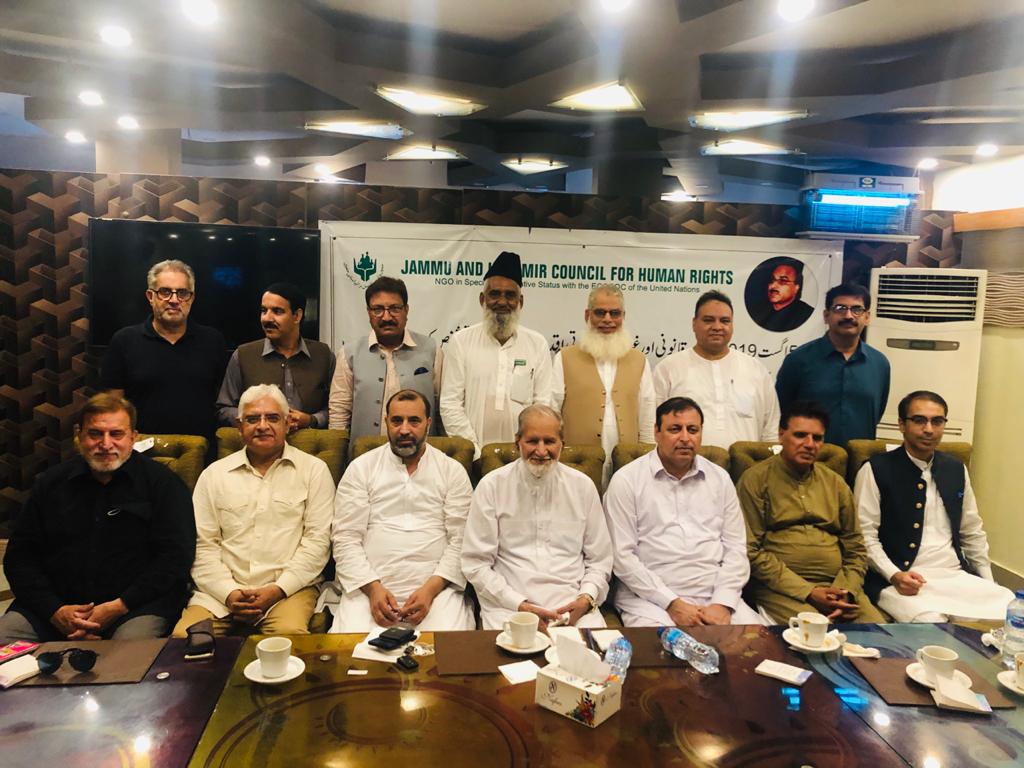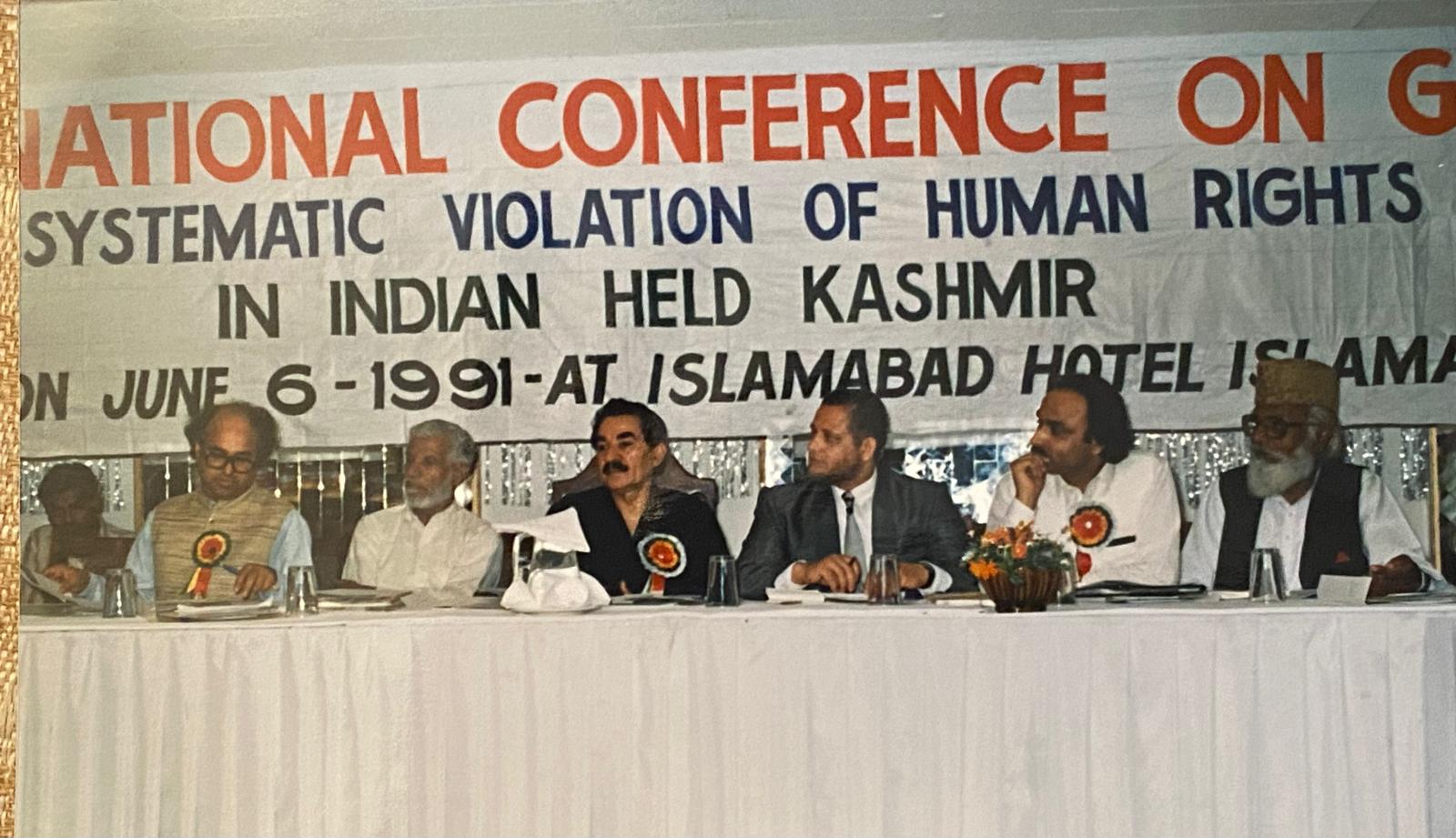- Background to the Petition:
In December 1992, the JKCHR filed a petition before the Azad Kashmir High Court, challenging the failure of the Azad Kashmir Government and the Government of Pakistan to adhere to their obligations under the 1970 Act and the 1974 Act. These Acts were critical in setting out the legal framework for the UN-mandated plebiscite process in Jammu and Kashmir. The petitioners argued that the governments of Azad Kashmir and Pakistan had failed to fulfill their constitutional duty to ensure that the plebiscite process was properly managed and that the right to self-determination for the people of Jammu and Kashmir was not being actively protected or pursued. - Key Legal Frameworks: Sections 8 of the 1970 Act and Sections 11 of the
1974 Act:
The 1970 Act and 1974 Act were fundamental in setting the legal parameters for the governance of Azad Jammu and Kashmir (AJK), especially in relation to the UN- supervised plebiscite process.
Section 8 of the 1970 Act: This section placed the responsibility on the Azad Kashmir Government to act in accordance with the UNSC Resolutions, which included the organization and administration of the plebiscite as well as ensuring that the will of the Kashmiri people was given the opportunity to be expressed through a free and fair vote.
Section 11 of the 1974 Act: This section extended the constitutional duty of the Pakistan government to ensure the plebiscite process was carried out in accordance with the UNCIP Resolutions and UNSC guidelines. It outlined the procedures for conducting the plebiscite, which included demilitarization, supervision of the vote by the United Nations, and ensuring that the Kashmiri people could make their
choice between India, Pakistan, or independence.
- Failure to Discharge Constitutional Duties:
The petitioners in December 1992 argued that both the Azad Kashmir Government and the Government of Pakistan had failed to discharge their constitutional duties as outlined in the 1970 Act and the 1974 Act. Specifically:
Azad Kashmir Government’s Failure: The Azad Kashmir Government had failed to appoint a Plebiscite Administrator and had not taken any substantial steps to prepare for a UN-supervised plebiscite, despite its constitutional obligations under
Section 8 of the 1970 Act. The government had neglected to ensure that necessary preparations for the plebiscite were made, as outlined by the UN resolutions.
Pakistan’s Failure: The Government of Pakistan was also accused of failing to facilitate the plebiscite process, especially regarding the military and political arrangements necessary to create an environment conducive to a free and fair plebiscite. Pakistan’s role was crucial, as Section 11 of the 1974 Act made it responsible for ensuring the plebiscite framework was honored, which included
supporting the plebiscite process and cooperating with the UN. - Azad Kashmir High Court Decision of April 1999:
In April 1999, the Azad Kashmir High Court delivered its decision, acknowledging the failure of both the Azad Kashmir Government and the Government of Pakistan to fulfill their constitutional duties. The court found that the failure to appoint a Plebiscite Administrator and the failure to implement the necessary steps for the UN-supervised plebiscite were clear violations of the constitutional obligations under the 1970 and 1974 Acts. The court, therefore, made a declaration of non-compliance against the Azad Kashmir Government and Pakistan for not upholding their legal duties regarding the plebiscite process. - Contempt of Court Post-1999 Decision:
Since the 1999 decision, the Azad Kashmir Government and the Government of Pakistan have been in contempt of the High Court’s ruling by failing to implement the court’s decision. Specifically, the court’s judgment required them to take concrete steps to appoint a Plebiscite Administrator and initiate the necessary political and military actions to comply with the UN-mandated framework for a plebiscite.
5.1 Failure to Act on Court’s Orders:
Despite the court’s directive, both governments have failed to take any substantial actions to remedy the situation, continuing their non-compliance with the 1999 High Court ruling. This non-compliance is a clear violation of the rule of law, as the court’s decision was a binding legal order, and the failure to implement it can be interpreted as a deliberate disregard of the court’s authority.
5.2 Political and Legal Consequences:
The non-compliance of the Azad Kashmir Government and Pakistan with the April 1999 judgment not only weakens the legal and political legitimacy of the governments involved but also undermines the credibility of their commitment to the UN framework for Kashmir’s future. The continued failure to implement the plebiscite means that the right to self-determination for the Kashmiri people, as envisioned by the UN resolutions, remains unfulfilled.
5.3 International Ramifications:
The continued contempt of court has potential international ramifications as it calls into question the sincerity of the governments involved in seeking a peaceful and legitimate resolution to the Kashmir issue. The UN resolutions and the legal obligation to hold a plebiscite have been internationally recognized, and the failure to implement these resolutions undermines Pakistan’s standing in the international community as a responsible actor in global diplomacy. - Conclusion: The Legal and Political Responsibility of the Governments of
Azad Kashmir and Pakistan
The petition filed by JKCHR in 1992 highlighted the failure of the Azad Kashmir Government and the Government of Pakistan to fulfill their constitutional obligations under the 1970 Act and 1974 Act, which were critical for implementing the UN-mandated plebiscite in Jammu and Kashmir. The April 1999 judgment of the Azad Kashmir High
Court provided a clear legal declaration of their non-compliance with these obligations, which, since then, has evolved into a case of contempt of court.
Both governments’ failure to discharge their constitutional duties has resulted in a continuing denial of the Kashmiri people’s right to self-determination, as promised under the UN resolutions and the UNCIP framework. Their non-compliance not only jeopardizes the legitimacy of their own governance but also undermines the legally binding nature of the UN resolutions and international commitments made in good faith. This ongoing contempt of court perpetuates the Kashmir dispute, denying the Kashmiri people the opportunity to have their say in their political future and keeping the region locked in
conflict.
Dr Syed Nazir Gilani
Dr-nazirgilani@jkchr.com.




